Bloggin Noggin
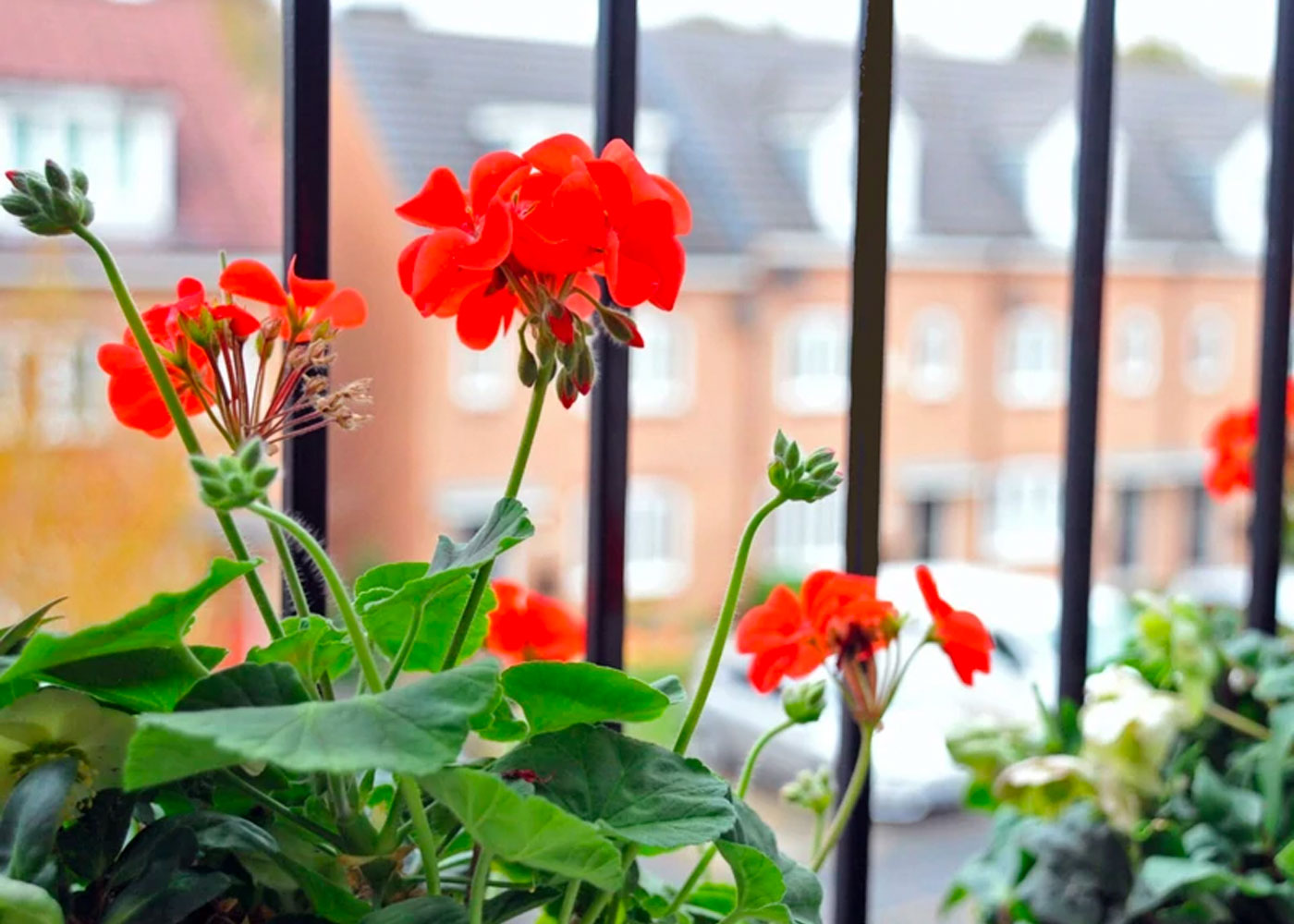
Mental Health
Why simple seed planting has brain health benefits
Whether you are green fingered or a plant phobic by nature, the last year has brought about a rapid increase in our interest in gardening. Spending more time at home has meant more time to focus on any outside space or even just window boxes we have access too.

Mental Health
Three ways to help you get on top of your to-do list
Easily irritated, forgetting simple tasks, even struggling to find words at times are all things I’ve experienced and heard people talk about a lot since we faced our new reality.
There are very good reasons why our brains are not functioning the way they were pre pandemic. Here are three small ways to get our thinking back on track...

Mental Health
Take a break - Doctor's Orders
Why taking a break between zoom calls can help with focus, reduce stress and improve wellbeing.
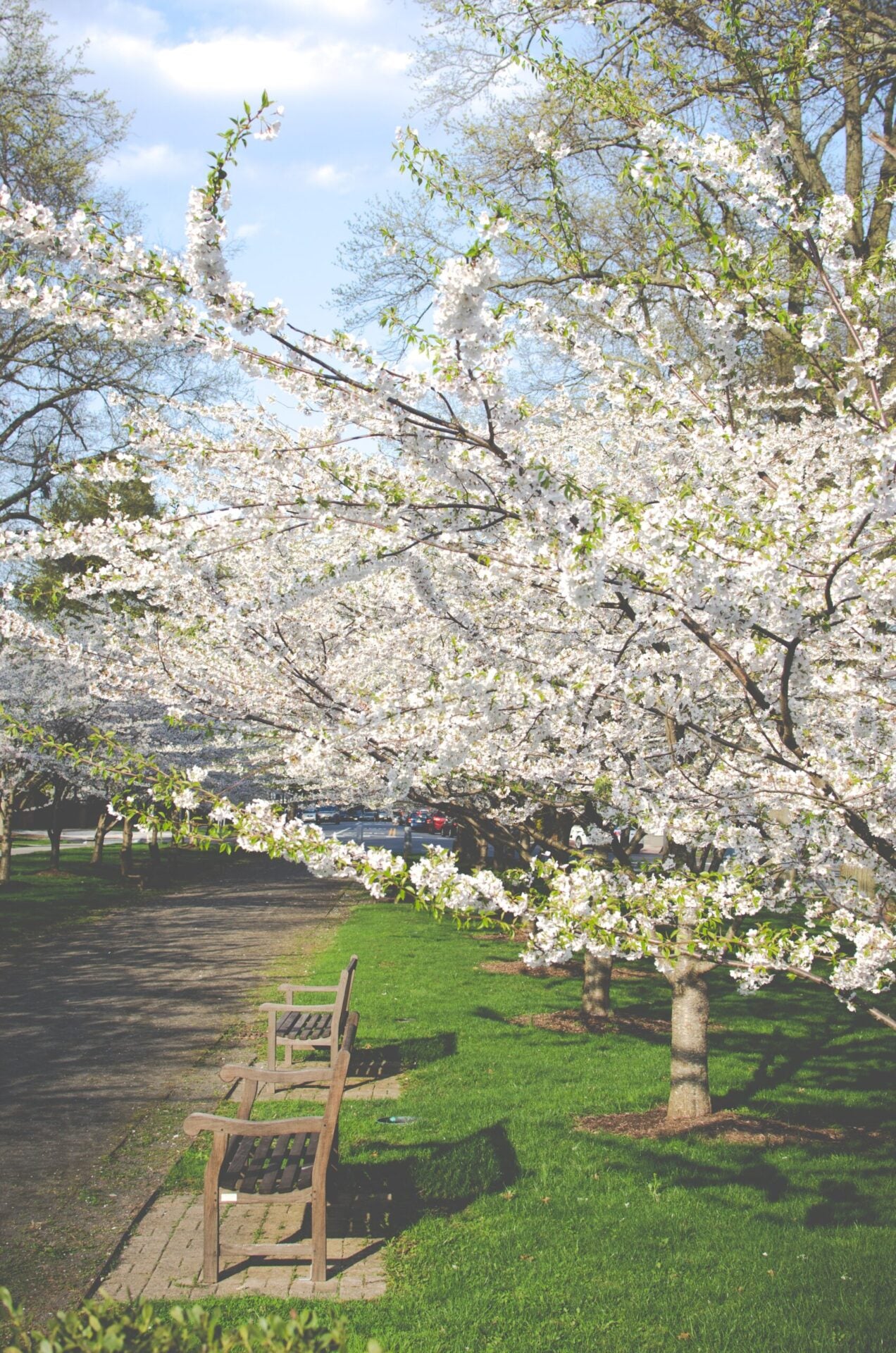
Mental Health
Do you walk or flaneur?
Do you walk to get your steps in or stretch your legs because you have to?
If you have fallen out of love with walking perhaps it's time to flaneur ?
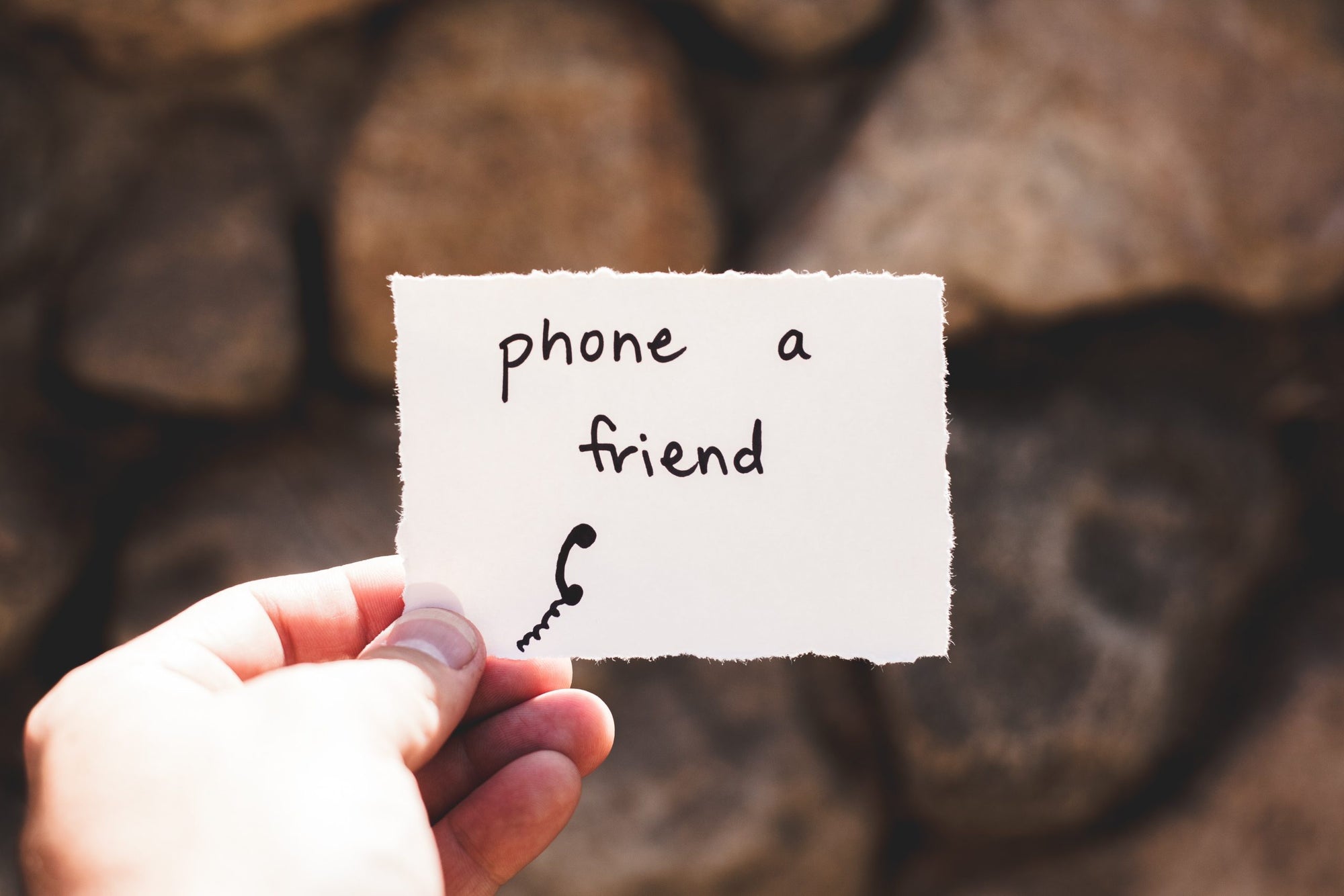
Mental Health
Nine ways to keep your Noggin on track
Easily distracted? Finding it hard to complete even the simplest of tasks?
Read on for some simple tips that can help us restore our focus and get stuff done.
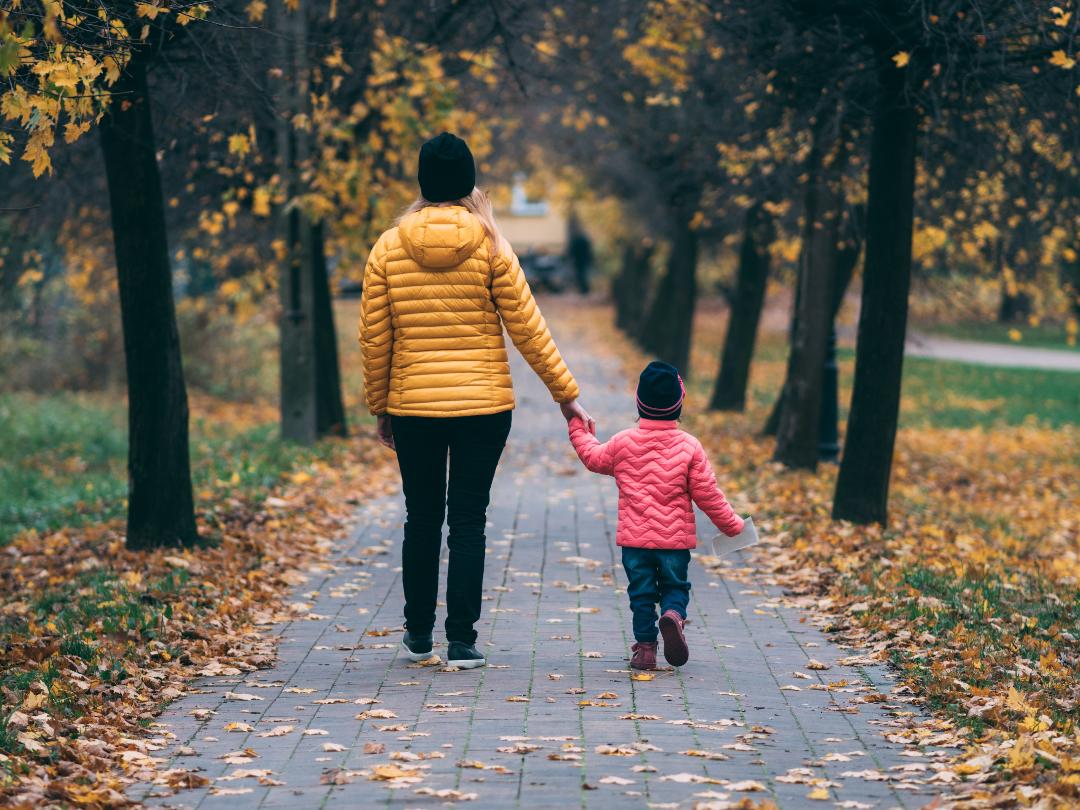
Mental Health
Going for (another) walk ? Time to step up your speed
Going for a walk has been the new going out in 2020 and it's a resolution to think about keeping up as we move into the New Year.
Walking speed at age 40+ linked to physical well-being and brain health
Here at Noggin HQ we're a fan of walking and have blogged on the many benefits of this simple and free way to “endorphinate”.
Recent research findings have found that the walking speed of a person at age 45 was associated with both physical health and also with brain health in midlife according to an NIA-supported study.
The findings, published in JAMA Network Open, suggest that a simple test of how fast a person walks could be a helpful indicator of how both the body and brain are ageing.
A team led by researchers at Duke University, Durham, North Carolina, looked at data from 904 participants in the Dunedin Multidisciplinary Health and Development Study, a population-based study that has followed 1,037 people born between 1972 and 1973 in Dunedin, New Zealand.
At the most recent assessment, researchers measured the 45-year-old participants’ physical and cognitive functioning and imaged their brains in an MRI scanner. All participants had their cognitive function first measured at age 3.This study showed that gait speed – which is how fast someone walks – has a relationship with physical and brain health. Participants with slower gait speed had more physical limitations, such as weaker hand-grip strength and more difficulty getting up from a chair, than those who walked faster.
Also, participants with slower gait speed were aging faster, as measured by a set of 19 biomarkers that included body mass index, blood pressure, cholesterol levels, cardiorespiratory fitness and gum health. These biomarkers were measured at ages 26, 32, 38 and 45, allowing the researchers to assess how the participants had aged over time.
In terms of brain health, participants with slower gait speed had signs more typically found in older adults, the MRI results showed. Compared with participants who walked faster, they had a smaller brain, a thinner brain cortex (which controls thinking, information processing and other brain functions) and more white matter hyperintensities — a sign of vascular disease and a risk factor for stroke and dementia. Participants with slower gait speed also performed worse on tests of memory, processing speed, reasoning and other cognitive functions.
So, the takeaway is keep moving, and stay as active as you can, whatever age you are.
This article originally appeared on the National Institute of Aging in the US.

Mental Health
Seasonal Affective Disorder: What It Is And How To Manage It
The nights are drawing in and as winter approaches this can have an impact on our brain health and mental wellbeing.
Seasonal affective disorder (SAD) is a type of depression which comes and goes in a seasonal pattern and can be common.
Many people start to feel the effects as autumn progresses into the winter months as days get shorter.
According to the NHS, symptoms of SAD can include:
• a persistent low mood
• a loss of pleasure or interest in normal everyday activities
• irritability
• feelings of despair, guilt and worthlessness
• feeling lethargic (lacking in energy) and sleepy during the day
• sleeping for longer than normal and finding it hard to get up in the morning
• craving carbohydrates and gaining weight
We don’t fully know the exact cause of SAD and it's often linked to a lack of exposure to sunlight during the shorter autumn and winter days.
The main theory is that a lack of sunlight may stop a part of the brain called the hypothalamus working properly.
This in turn can affect three areas of brain function:
• production of melatonin – melatonin is a hormone that makes you feel sleepy; in people with SAD, the body may produce it in higher than normal levels
• production of serotonin – serotonin is a hormone that affects your mood, appetite and sleep; a lack of sunlight may lead to lower serotonin levels, which is linked to feelings of depression
• body's internal clock (circadian rhythm) – your body uses sunlight to time various important functions, such as when you wake up, so lower light levels during the winter may disrupt your body clock and lead to symptoms of SAD outlined above
Mental heath charity Mind states that SAD can affect you during any season or time of year. Some people experience it in summer, although less research has been conducted on this so you might find people are more aware of winter SAD.
The Royal College of Psychiatrists have published a paper on how to tackle seasonal affective disorder, I’ve shared some of their findings below.
You can read the entire article here.
SAD can be treated in the same way as depression. Treatment usually includes self-help and lifestyle changes, talking therapies and antidepressant medication.
Light box treatments are also popular and have some evidence.
Self-help
Some symptoms of SAD can create extra problems which make you feel even worse – 'vicious circles’:
If it is dark and you feel tired all the time, you will probably do less – and this can make SAD worse. Try to get as much natural sunlight as possible. Take a walk during daylight hours or carry on any exercise you would normally do. Remind yourself that days will get longer again in the spring.
If you are eating more, you may put on too much weight which makes you feel worse. Remind yourself that most people put on weight in autumn and early winter.
Sleepiness, lack of motivation and irritability can all cause problems at home, with your friends, and at work. The feelings of not getting things done can make you feel stressed.
Tell your family and friends so that they can understand what is happening and be supportive.
Light therapy
The idea is to try to provide extra light and to make up for the shortage of daylight in winter. A "light box" is used. Its light is like sunlight, but without the ultraviolet rays, so it is not harmful to the skin or the eyes. It may help tell the brain to make less of a hormone, melatonin.A light box is usually used for 30 minutes to an hour each day. It is most helpful if you use it at breakfast time. Light therapy works quite quickly. If it is going to help, most people will notice some improvement in the first week.
Fortunately, any side-effects are usually mild. They include headache, nausea or blurred vision. It is usually best not to use a light box after 5.00 pm because you may then find it hard to get to sleep.
Dawn-simulating alarm clocks are also used. These come on dimly about an hour before waking up time and gradually get brighter. They can be helpful if you find it hard to wake up on winter mornings.
Medication
Antidepressants may be helpful in SAD and it's important to discuss any concerns you have with your doctor.
Cognitive behavioural therapy (CBT)
There is some evidence that CBT can help winter depression and may prevent it coming back in future winters. CBT is a treatment for anxiety and depression in general.
You have weekly sessions with a therapist and do some homework, like keeping a diary. Have a look at our leaflet on CBT.
What is the best treatment?
For mild symptoms, the self-help measures described in this leaflet will usually be enough.
If your symptoms are worse, the first choice is usually between a light box and antidepressants.
The choice will often depend on what is available, what is convenient and what you prefer.
When to see your GP
You should consider contacting your GP if you think you might have SAD and you're struggling to cope. Your GP will be able to carry out an assessment to check your mental health.
They may ask you about your mood, lifestyle, eating habits and sleeping patterns, plus any seasonal changes in your thoughts and behaviour.
Keep well, Dr Clara Russell
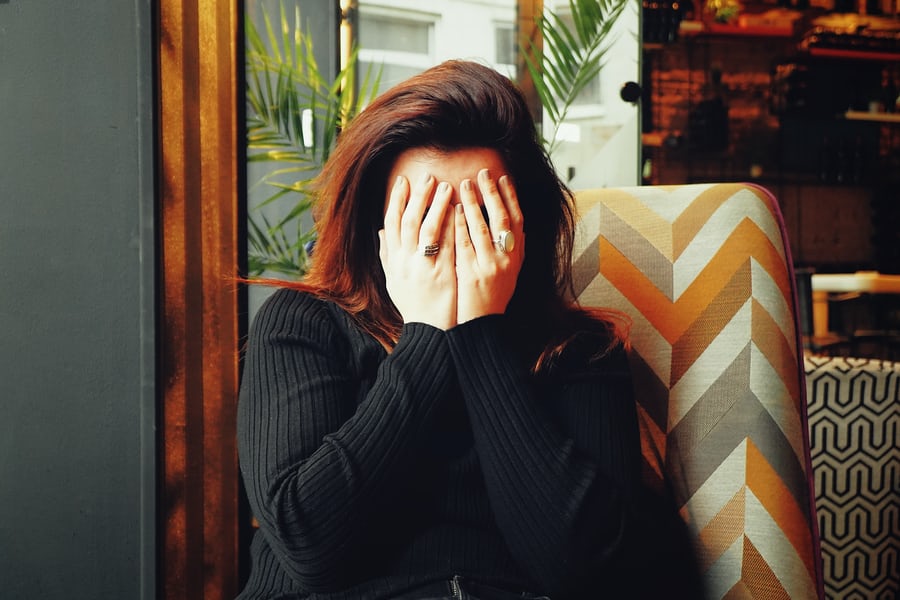
Mental Health
Where has all the Small Talk gone?
Zoom, Teams or Face Time
Social interaction has changed beyond imagination in the last few months for most of us. Face to face via a screen has become the new normal in a way that we would never have thought possible back at the beginning of 2020. Whilst the technology we have now become accustomed to in order to run our everyday lives has many benefits, there is now a brand new way to feel socially awkward in your own home. Who ends the zoom call? Do you wave? What happens when we keep talking over each other due to delays or dodgy connections? What or who fills the normal pauses in conversation that might naturally be filled by weather chat?
Uh oh, did I really just say that?
That awkward feeling you have when you say something out of turn on a call, or suddenly hear your kids or your partner saying something totally non office worthy in the background is actually a signal from your noggin that is designed to help you avoid making social missteps in the future.
Brain Hardwiring
This is one of these hardwiring mechanisms that exists to help you survive and keep in step with your peers. Psychologists have suggested that having feelings of embarrassment after saying something awkward is part of a social survival mechanism to help you keep your footing in your tribe.
Ty Tashiro, psychologist and author of “The Science of Why We’re Socially Awkward and Why That’s Awesome” says “our minds have an overly sensitive emotional trigger when it comes to alerting us to unmet social expectations because our need to belong is so essential to our well being “
Red Cheeks anyone?
This uncomfortable feeling can trigger the ‘fight or flight ‘ response and add to your already sweaty palms and escalating heart rate.
There is so much heavy stuff to talk about, and in the absence of holidays, family dramas or the usual chit chat that might fill our natural silences with small talk, the art of conversation is taking a different path at the moment.
How to deal with that awkward pause
Remember we are all in the same boat, we are all going through this extremely challenging time together and although our individual experiences may differ we are all challenged by the current state of affairs
Rather than focusing on how weird you feel, focus on the person or people you are talking to. Actively listen and engage with what the other person is saying and if in doubt, remind yourself and your screen mate that, yes, this is just weird
Be kind- no one is judging your zoom call performance. We are now fully accepting of having to answer door bells, handle barking dogs or manage toddlers in the middle of an at home work day. Embrace the awkwardness and have compassion for each other.
Keep well
Dr Clara Russell

Mental Health
Feeling a bit blah?
Anyone else feeling a bit blah, meh or feeling their 'get up and go' has 'got up and gone'?
I write this as I too, as well as a friend I spoke with just the other day, are both feeling all of the above.These feelings can manifest in a number of ways.It may be the time of year with the seasons changing, the wet weather or worry as we navigate Covid, the uncertainty it brings.It could be taking longer than you anticipated to adopt new regimes when it comes to working, education and day to day living. Or it could just be for any reason.
These feelings can manifest themselves in a number of ways:- what is the point- wondering what the world is coming to- finding a million ways to procrastinate and avoid doing the job or task you should be doing- not wanting to get off the couch- wanting to eat copious amounts of food, the more unhealthy the better- drinking wine as a consolation reward- not feeling inspired. At all.- beating yourself up about not feeling like doing anything that day or the day before or the day tomorrow- not really seeing the point (you know there is a point but right now you just can't be bothered!) - wanting to stay in bed- feeling guilty for feeling ‘blah'- unsure whether to just indulge in the ‘blah' or fight itEveryone has these days but these feelings can be especially heightened right now if you’ve been made redundant, are unwell, lost your business, are furloughed and worried about job security or your health.
It’s also a very difficult and unstable time if you're self employed, freelance or a business owner and your livelihood depends on you not feeling very ‘blah’.Here are some steps to tackle the ‘blah' factor. If however you are worried about your own mental health or of that of a family member, please speak with your GP.There are also a number of mental health charities and services online you can check out, the NHS has a full list here.
Acceptance It’s ok to not be ok and we all have those days. Accept it and sit with it, don’t fight it. You won’t win.
Distraction Do something, anything, but don’t go on social media as this may make you prone to fo the comparison thing which is never good but especially when you don’t feel like you’re firing on all cylinders. Trust me, I’m a Doctor.
InspirationWatch Gone With The Wind or another worldly movie, take a virtual tour - visit these amazing museums from around the world from the comfort of your own home or listen to an educational and inspiring podcast. Shake it up a bit when it comes to media and what you tend to watch or read.
ExerciseA 20 min walk works wonders for your mood. Even though the weather of late has been distinctly un-summery if you can get out, you will feel the benefits.Though do make sure you’re wearing adequate clothing. Nothing adds more to the ‘blah’ vibe than getting soaked to the skin in the wind and rain.
Phone A FriendTexts and WhatsApp messages are all well and good but somethings need to be said and also heating someone else’s voice can lift our mood. Don’t be hiding away, phone a friend if you can, even a quick 5mins can lift your mood and theirs. So win, win.
Manage PressureDo you have to do all the things you think you have to do, today? Will doing it today rather than tomorrow have a negative or positive impact on the outcomes? When feeling ‘blah’ I only concentrate on exactly what needs to be done, so prioritise because your health and wellbeing is SUPER important.
Think Like Scarlett O’HaraHave faith that all will be well and remember that famous line from that wonderful movie, Gone With The Wind "After all, tomorrow is another day!"
Keep Well, Dr Clara Russell
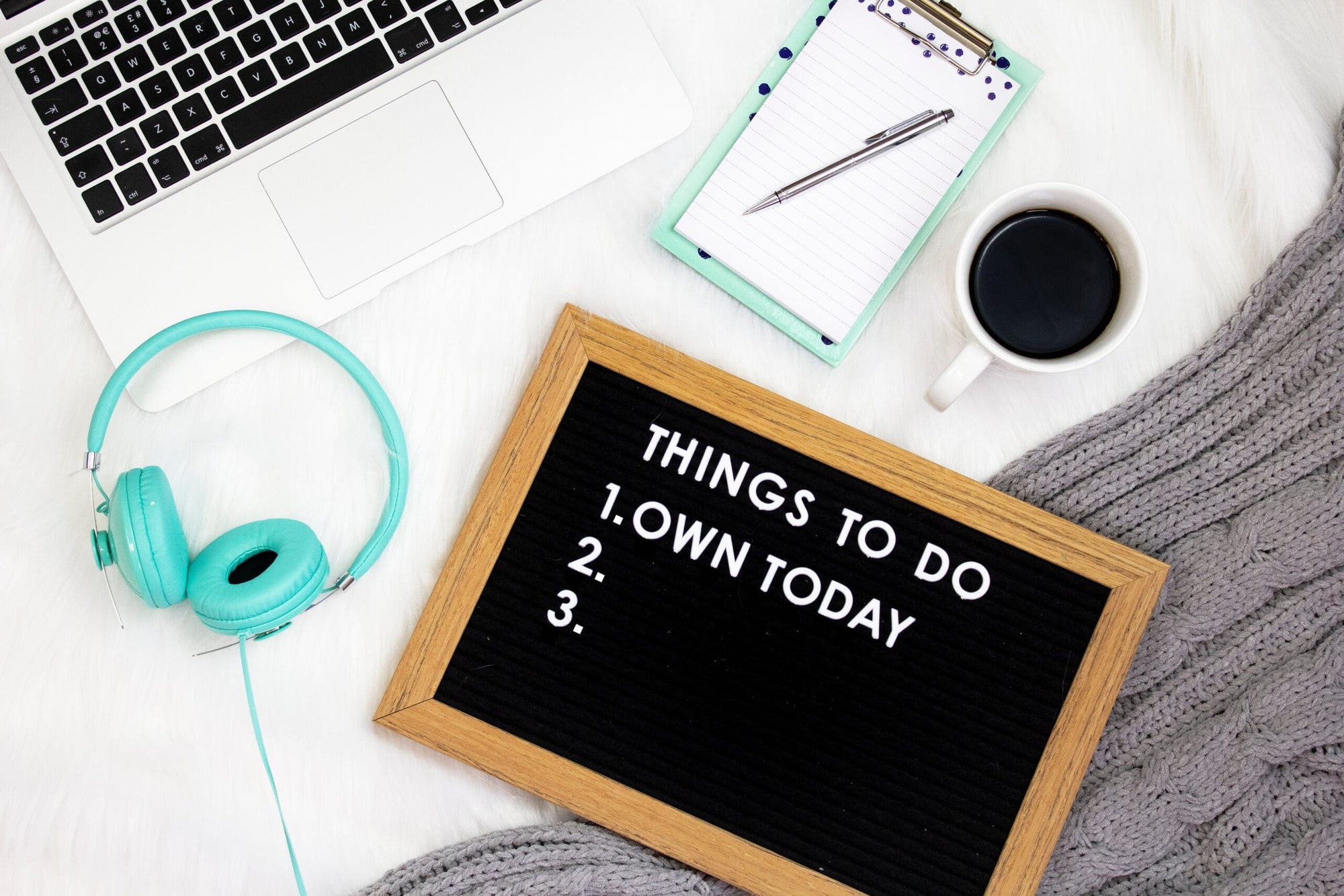
Mental Health
Keep It Simple
Keep it simple - post Covid our brains have faced complex challenges
Many of us have faced multiple challenges whilst navigating lockdown and the new normal.
Our work, downtime, family lives, parenting and pastimes have all merged into a tangle of confusion, new ways of being and thinking.
Our reliance on technology has also meant we’re spending more time in front of screens and even little things have become overwhelming.
So, it's no wonder many of us are feeling flat and frazzled.
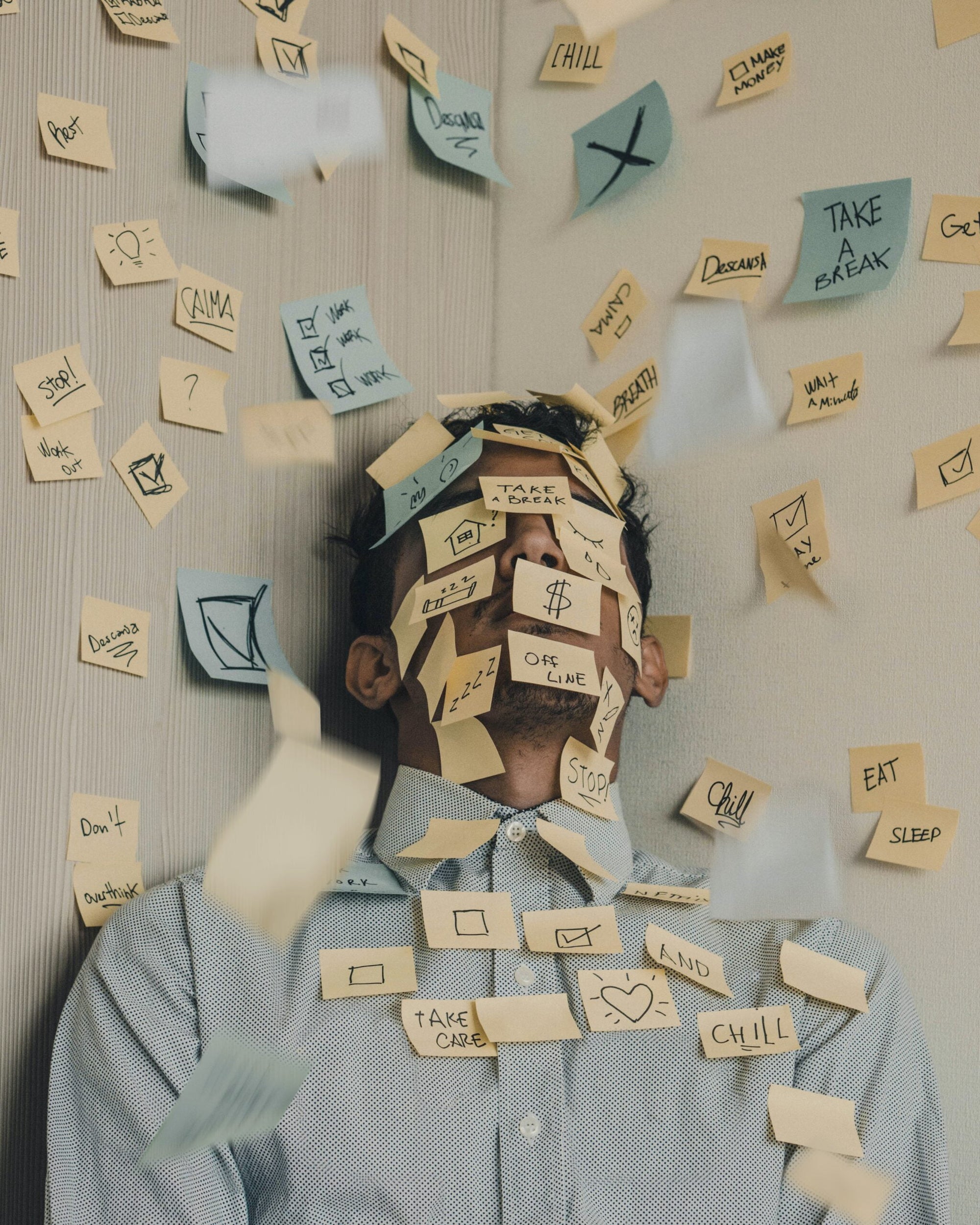
Mental Health
Feeling Overwhelmed?
We’ve all been navigating the challenges of Covid and there’s no doubt it’s taken its toll on our brain health, mental wellbeing and general health, in one way shape or form.
Juggling home schooling, WFH, risk of redundancy, health concerns and adapting to the ’new normal’ are just some of the complex challenges we are facing.
Here are some nutritional tips and lifestyle suggestions on how to improve your mood and limit the damage caused by stress and anxiety.
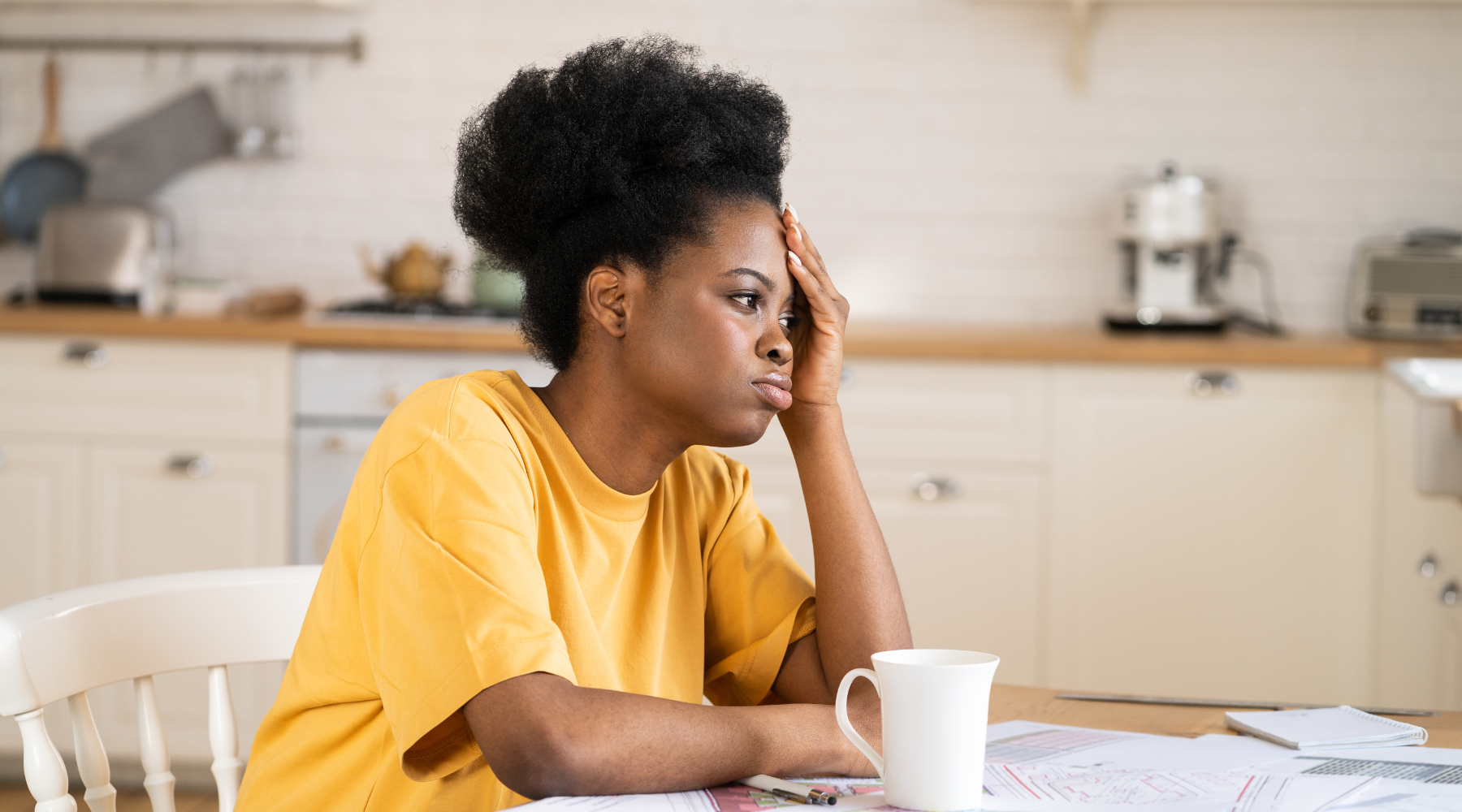
Brain Health
Is lack of sleep causing you stress?
Did you know that poor sleep quality, or a lack of sleep can be causing you stress? More than just irritability, stress can raise your cortisol levels which isn't great for your brain or your body. Here's our 3 top tips for better sleep that you can try today.






